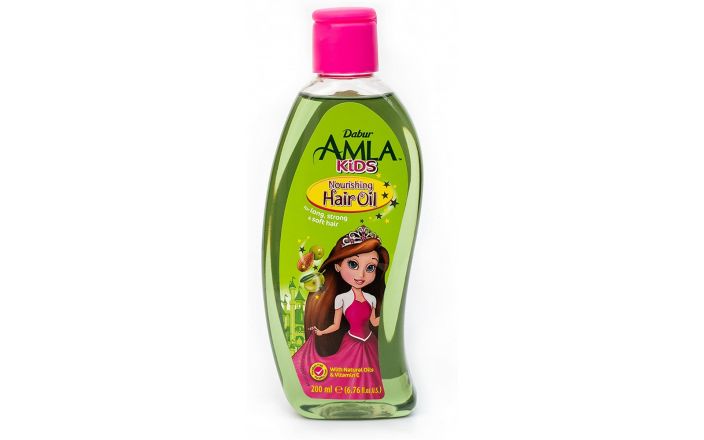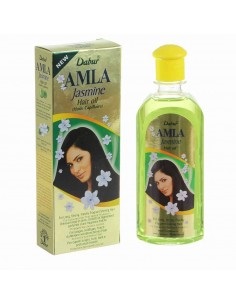Having rich, healthy hair is a reflection of our overall well-being and is more than just about appearance. What we eat, how we live and how we care for our hair all play a vital role in its health. Unfortunately, many people fall prey to common misconceptions and mistakes that damage their hair, leading to problems such as breakage, dullness and hair loss. It is crucial to educate ourselves about good hair care practices and make wise choices to keep our hair healthy. By knowing what factors influence hair health, we can actively maintain strong and vibrant hair.
Mistakes to avoid for healthy hair
- Insufficient and excessive washing : Maintaining healthy hair requires finding the right balance when it comes to washing frequency. While maintaining cleanliness is crucial, excessive washing can strip the scalp of its natural oils, causing it to become dry and irritated and possibly produce more oil to compensate. Conversely, under-washing can lead to dandruff, clogged hair follicles and product buildup on the scalp. It is crucial to pay attention to the needs of your hair and scalp and adjust the frequency of washing accordingly. For most hair types, washing every two to three days is a good balance, although this can change based on things like activity level, hair texture and environmental influences.
- Abuse of heat styling : The health of your hair can seriously suffer from overuse of hot styling tools such as blow dryers, curling irons and straighteners. The intense heat can damage the hair’s cuticle, causing it to become dry, breakage and lose its shine. Limit the use of hot tools and, if possible, opt for heat-free styling techniques to reduce heat damage. Use a high-quality heat protection spray or serum when heat styling is necessary to coat your hair in a protective layer away from the heat source and reduce the chance of damage.


- Neglecting a healthy diet : To keep our hair vibrant and healthy, it needs a range of nutrients. To promote strong, resilient hair growth, it is necessary to consume proteins, vitamins (especially A, C, D and E), minerals (such as biotin, iron and zinc) and omega-3 fatty acids. Hair thinning, dullness and even hair loss can result from a diet that lacks essential minerals. Include a wide variety of nutritious foods in your diet, such as lean meats, fruits, vegetables, whole grains, nuts, seeds, and fatty fish like salmon, to ensure your hair gets the necessary nutrition.
- Harsh hair products : Conventional hair care products contain ingredients such as silicones, parabens and sulfates that can strip the hair of its natural oils, leaving it dry and brittle. Avoid products that contain these harmful ingredients. Instead, opt for natural hair care products made with nutritious ingredients such as botanical extracts, essential oils and plant oils. These non-harmful substitutes effectively moisturize, cleanse and protect hair.
- Avoiding Pulling Too Much and Tight Hairstyles : Even though tight ponytails, braids and buns are popular right now, your hair can suffer significantly if you wear them too often or too tight. Traction alopecia is a condition in which excessive stress is placed on the scalp and hair follicles due to tight hairstyles. This tension, especially at the temples and hairline, can lead to thinning, breakage or even permanent hair loss.
Ten hair myths you should be aware of
- 1. Pruning to promote growth: It is a common misconception that cutting your hair accelerates growth. The hair grows not at the ends, but near the scalp. In short, trimming promotes healthier-looking hair by preventing broken ends from moving along the hair shaft.
- 2. Shampooing Daily: While it is commonly believed that washing your hair daily is essential for clean hair, this can deplete your scalp’s natural oils, causing dryness and irritation. Your lifestyle and hair type should determine how often you use shampoo.
- 3. Hair is always damaged by color treatments: Although coloring your hair frequently can weaken it, proper materials and current techniques help limit damage. Choose professional treatments and nourishing aftercare products to reduce the risk of damage.
- 4. Natural Hair Masks Provide Instant Results: Although natural therapies have benefits, they cannot show immediate effects. Over time, the best results are achieved when a holistic approach to hair care is combined with consistent application.
- 5. Hair Brushing: Use 100 strokes per day for shine: Excessive brushing can damage hair strands by stretching and breaking them. Brushing should be done gently and as needed to detangle and style, not for a set number of strokes.
- 6. Hair is thicker after shaving: Hair growth rate and thickness are not affected by shaving. The blunt edges may initially give the impression that it is thicker; however, this is an aesthetic effect.
- 7. Not Using Conditioner Helps Keep Things Greasy: Whether conditioner seems greasy or not, it is necessary to keep hair healthy. Shampoo problems and dry, brittle hair can result from skipping conditioner.
- 8. Tying Your Hair Tightly Helps Reduce Frizz: Frizz, traction alopecia and breakage can result from hair follicle tension caused by tight hairstyles. Choose looser hairstyles to reduce damage and promote healthy hair.
- 9. Plucking out a single gray hair causes more: A single gray hair does not grow back in place when plucked. On the other hand, excessive plucking can damage the hair follicle and cause irreversible hair loss.
- 10. Investing in high-quality products ensures superior results: While certain high-quality products can provide pleasant experiences and high-quality components, effectiveness is not always correlated with price. There are several reasonably priced hair care products available that provide excellent results.
The Role of Scalp Health
The basis for good hair growth is a healthy scalp. Healthy scalps are essential for healthy, vibrant hair because they provide the nourishment and support hair follicles need to grow and thrive. In addition to promoting the best conditions for hair growth, a healthy and nourished scalp helps prevent problems such as dandruff, irritation and inflammation.
Maintenance Procedures Incorporate scalp-friendly activities into your hair care routine to maintain a healthy scalp. Regular scalp massages promote blood circulation to the hair follicles, which supports the healthy development of the scalp. By removing dead skin cells, product buildup and excess oil from the scalp, exfoliation improves nutrient absorption and promotes healthier hair growth. Additionally, using mild, sulfate-free shampoos and avoiding harsh chemical treatments will keep your scalp happy and healthy.
Lifestyle habits for healthy hair
- The importance of getting enough sleep: A good night’s sleep is crucial for maintaining overall health and well-being, including healthy hair. The body, including hair follicles, renews and repairs itself while we sleep. Lack of sleep can disrupt the hair growth cycle, leading to problems such as hair loss and hair loss. Aim for 7 to 9 hours of quality sleep per night to promote the healthiest possible hair growth and overall energy.
- Setting a schedule: Create a soothing evening routine that tells your body it’s time to relax and get ready for sleep to improve the quality of your sleep. This may include activities such as reading a book, listening to relaxing music, taking a warm bath, or practicing mindfulness or meditation. Stay away from screens and stimulating activities in the hour before bed, as these can disrupt your body’s normal sleep-wake cycle and make it harder to fall asleep.
Stress management
Stress and hair loss are related. Prolonged stress can negatively impact the health of your hair, resulting in problems such as hair loss, hair fall and thinning hair. Stress causes our body to secrete more cortisol, a hormone that can disrupt the hair growth cycle and cause premature hair loss. Stress can also tighten the muscles in the scalp, which restricts blood flow to the hair follicles and prevents normal hair growth.
Methods to reduce the effects of stress include incorporating stress-relieving practices into your daily routine to reduce the negative effects of stress on your hair. This may include engaging in activities such as yoga, deep breathing techniques, mindfulness meditation, or spending time in nature. Regular exercise can also help reduce stress levels and improve general well-being. Additionally, prioritize self-care activities that make you happy and relaxed, such as reading a book, taking a bubble bath, or spending time with friends and family. By practicing appropriate stress management, you can maintain your overall health and vitality, as well as promote healthy hair growth.
In brief
Unlocking your hair’s full potential is easier than you think. By avoiding common pitfalls and debunking myths, you pave the way for healthier, more vibrant hair. Embrace a holistic approach to hair care, with an emphasis on gentle treatment and internal nourishment. Remember, healthy hair reflects a healthy lifestyle. Prioritize self-care, nutrition and stress management to maintain strong, beautiful hair for life.

